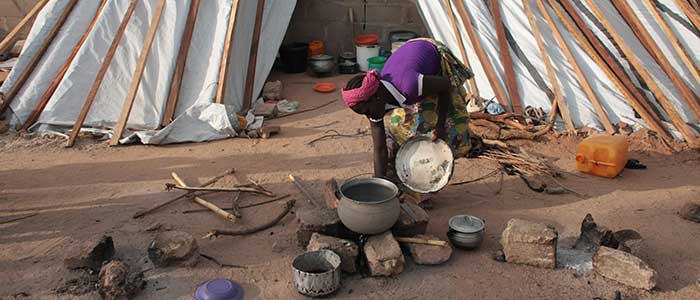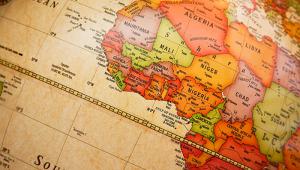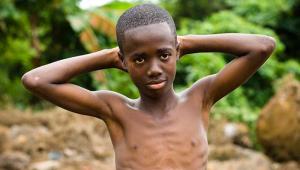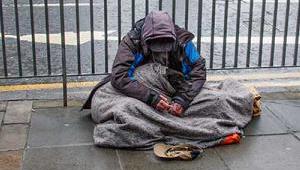refugee camp nigeria lake chad.jpg

A woman cooks in a Nigerian refugee camp
The NGO estimates $1.2bn is needed to deliver assistance to 14 million people in need in the country’s conflict-hit Borno State, where a Boko Haram insurgency has left the region “teetering on the brink” of famine and put as many as 400,000 children’s lives at risk from malnutrition.
Some of the vast sums of dirty money that are laundered through UK banks and the property market and later seized by authorities could be used to fund the humanitarian response next year, Save the Children and anti-poverty group the ONE Campaign have pointed out.
The current United Nations appeal for Nigeria went only 38% funded, while the funds required are likely to double in 2017 as the Nigerian army captures more territory from Boko Haram. As areas become accessible, NGOs report finding more people in dire need of aid.
“There is still a window of opportunity to prevent full blown famine,” said Keith Watkins, Save the Children chief executive. “But that window is closing fast. Failure to act would be indefensible and unforgivable.”
Among other interventions, the organisation is calling for innovative financing approaches to be taken to ensure a fully funded appeal in 2017.
Criminal assets looted from Nigeria and seized in the UK can now be returned to the country under an agreement with the government, which has pledged to use any returned funds to benefit the poorest.
The amount returned is expected to rise to tens of millions of pounds over the coming years, and estimates of illicit cash from Nigeria in the UK are likely to be conservative. Experts agree that only a very small proportion of money laundering is detected.
Individual cases, such as that of James Ibori, a former governor of Nigeria’s oil-rich Delta State, have involved fraud worth $63m.
Watkins said the deal for such funds to be returned was a “welcome step forward”.
“Save the Children is now calling on the UK government to expedite the return of these funds for the humanitarian response. Other OECD countries and the Nigerian government itself should apply the same principle,” he said.













